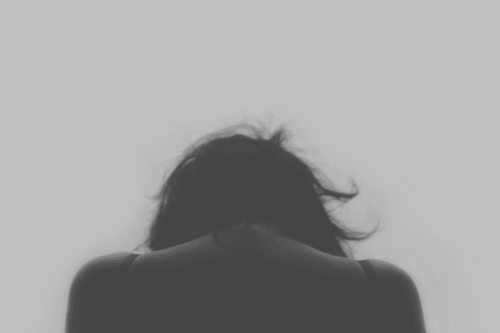Why Do We Sometimes Blame the Victim?

Before the trial against “La Manada“, many people asked themselves why society sometimes tends to blame the victims of abuse.
People tend to do this when they share some of the aggressor’s traits or when they don’t want to endanger their sense of control. They think that if the fault lies with the aggressors and not with the victim, the same thing the victim suffered could happen to them too. People usually make this last attribution when they share characteristics with the victim. If the victim made a “mistake”, they feel a false sense of security. They think that nothing will happen to them if they don’t make the same “mistake”.
When we believe that the person who suffered the aggression is responsible, we feel safer. We believe that we have control over any situation. In other words, we believe we’re safe as long as we “do the right thing”. This belief makes us unconsciously blame the victim.
In any kind of gender violence, people tend to focus on the woman’s possible responsibility. As an example, we have prevention and educational campaigns that focus on the “security measures” that women should adopt.
Women are the only ones who seem forced to do something to avoid aggression. However, information and prevention campaigns should also focus on other things, such as potential aggressors and even society as a whole. This way, they wouldn’t indirectly contribute to victim blaming.

Why don’t some people fight when they’re about to be victims of sexual abuse or rape?
People have a complex nervous system that paralyzes them when they face a danger in which fight or flight aren’t possible responses. This paralysis represents the body’s response in order to be able to survive. In the case of consensual sex and immobilization, the brain produces oxytocin, the love hormone, which prevents trauma.
But when sex is forced, the person is paralyzed and frozen. Rapists or external observers see this as consent or an opportunity. Paradoxically, the abused person, the victim, remains traumatized by the shame of it. The abuser leaves and doesn’t feel guilty for what they did.
When we blame the victim, do we put ourselves in their shoes or not?
When we blame the victim, we may be defending ourselves from something. The attributions we make about the facts minimize the weight with which we want justice to fall on the aggressors. We accept lighter sentences for them.
We may live in a world where women’s rights are still on thin ice, but there’s something more to the tendency of going against the victim. Perhaps the men who defended the five aggressors in “La Manada” sexual assault trial only observed the attributions from their point of view. In some sense, they believe that society is indirectly attacking them.

Women who think that the victim is partially responsible do so to feel in control. They identify the factors that would prevent the same thing from happening to them. We’ve all heard comments from other women such as “That would never happen to me” or “I would act differently”. However, in the end, we don’t know how we’d respond to any situation.
You can put yourself in the place of the accused, but we’ve all seen the video where four of the condemned men of “La Manada” abused an unconscious girl. In this case, the attributions are clear. Also, science gives us the answer as to why a person remains paralyzed when they can’t fight or flee. Thus, we should all put ourselves in the victim’s shoes.
Before the trial against “La Manada“, many people asked themselves why society sometimes tends to blame the victims of abuse.
People tend to do this when they share some of the aggressor’s traits or when they don’t want to endanger their sense of control. They think that if the fault lies with the aggressors and not with the victim, the same thing the victim suffered could happen to them too. People usually make this last attribution when they share characteristics with the victim. If the victim made a “mistake”, they feel a false sense of security. They think that nothing will happen to them if they don’t make the same “mistake”.
When we believe that the person who suffered the aggression is responsible, we feel safer. We believe that we have control over any situation. In other words, we believe we’re safe as long as we “do the right thing”. This belief makes us unconsciously blame the victim.
In any kind of gender violence, people tend to focus on the woman’s possible responsibility. As an example, we have prevention and educational campaigns that focus on the “security measures” that women should adopt.
Women are the only ones who seem forced to do something to avoid aggression. However, information and prevention campaigns should also focus on other things, such as potential aggressors and even society as a whole. This way, they wouldn’t indirectly contribute to victim blaming.

Why don’t some people fight when they’re about to be victims of sexual abuse or rape?
People have a complex nervous system that paralyzes them when they face a danger in which fight or flight aren’t possible responses. This paralysis represents the body’s response in order to be able to survive. In the case of consensual sex and immobilization, the brain produces oxytocin, the love hormone, which prevents trauma.
But when sex is forced, the person is paralyzed and frozen. Rapists or external observers see this as consent or an opportunity. Paradoxically, the abused person, the victim, remains traumatized by the shame of it. The abuser leaves and doesn’t feel guilty for what they did.
When we blame the victim, do we put ourselves in their shoes or not?
When we blame the victim, we may be defending ourselves from something. The attributions we make about the facts minimize the weight with which we want justice to fall on the aggressors. We accept lighter sentences for them.
We may live in a world where women’s rights are still on thin ice, but there’s something more to the tendency of going against the victim. Perhaps the men who defended the five aggressors in “La Manada” sexual assault trial only observed the attributions from their point of view. In some sense, they believe that society is indirectly attacking them.

Women who think that the victim is partially responsible do so to feel in control. They identify the factors that would prevent the same thing from happening to them. We’ve all heard comments from other women such as “That would never happen to me” or “I would act differently”. However, in the end, we don’t know how we’d respond to any situation.
You can put yourself in the place of the accused, but we’ve all seen the video where four of the condemned men of “La Manada” abused an unconscious girl. In this case, the attributions are clear. Also, science gives us the answer as to why a person remains paralyzed when they can’t fight or flee. Thus, we should all put ourselves in the victim’s shoes.
This text is provided for informational purposes only and does not replace consultation with a professional. If in doubt, consult your specialist.







